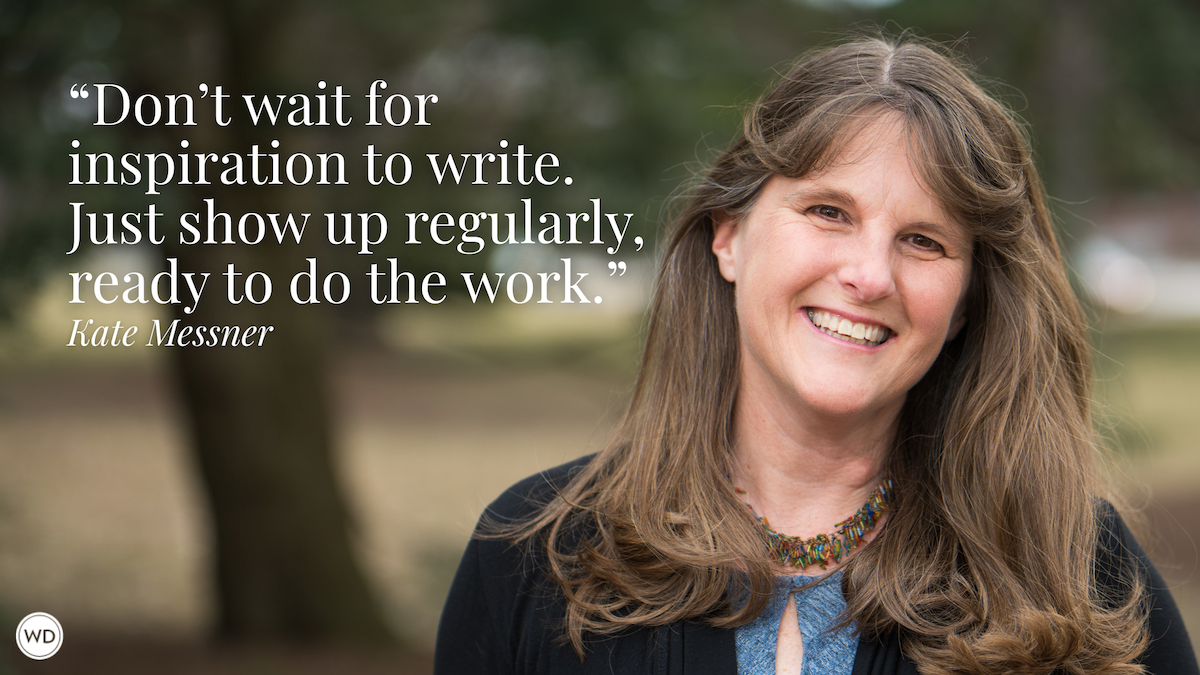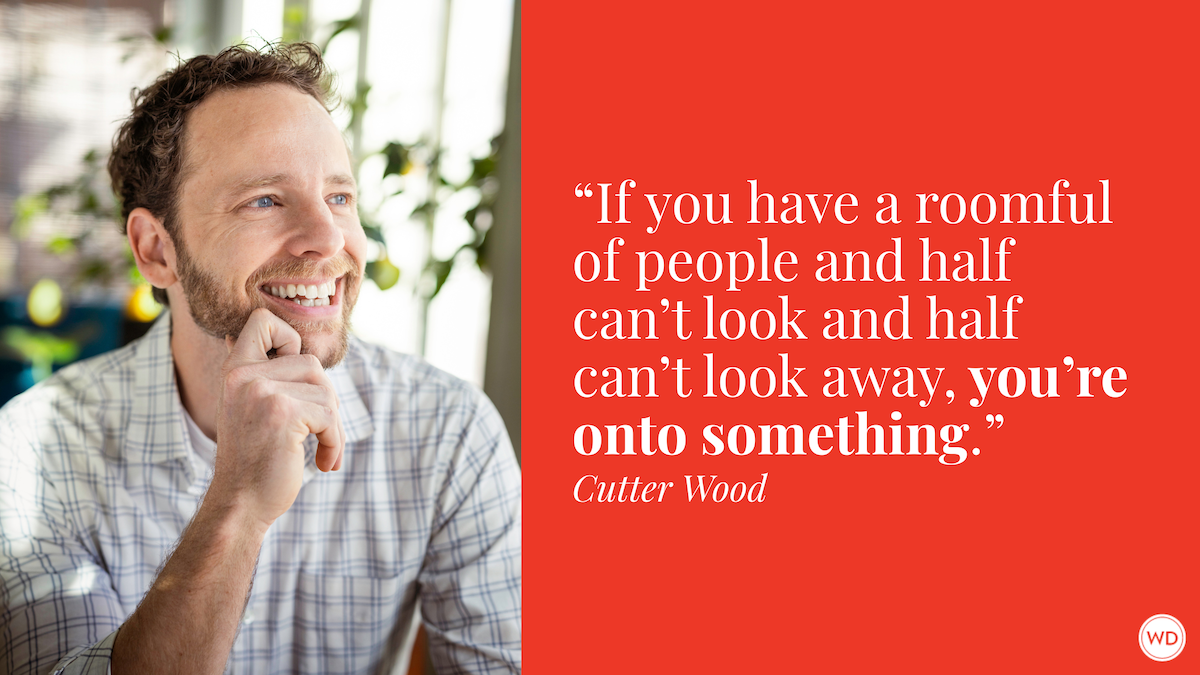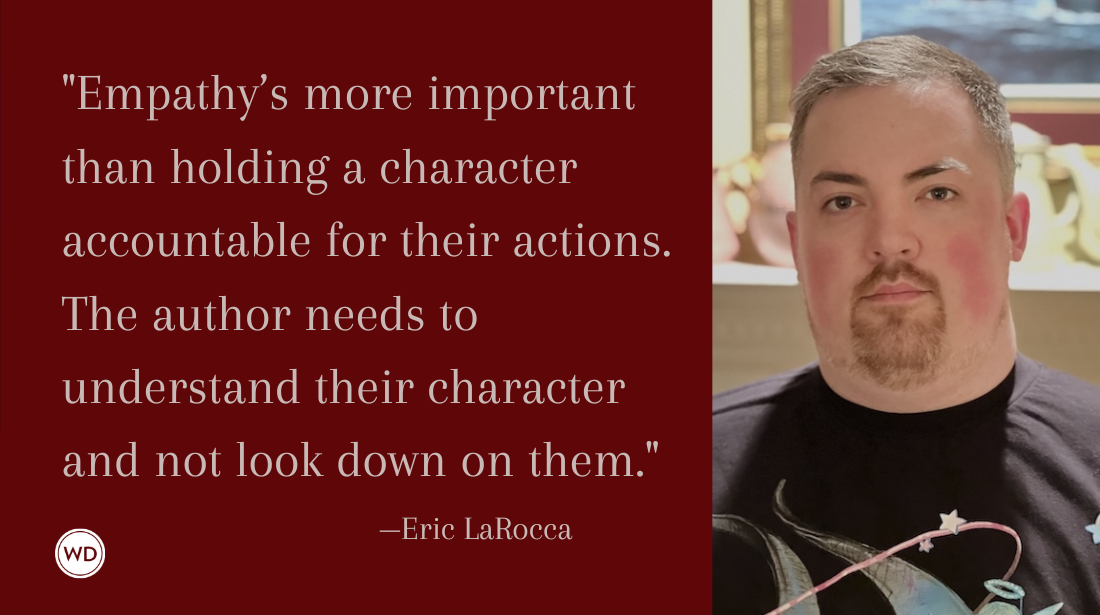Writing Mistakes Writers Make: Thinking There’s Not Enough Room for Your Story
The Writer’s Digest team has witnessed many writing mistakes over the years, so this series helps identify them for other writers (along with correction strategies). This week’s mistake is thinking there’s not enough room for your story.
Everyone makes mistakes—even writers—but that's OK because each mistake is a great learning opportunity. The Writer's Digest team has witnessed many mistakes over the years, so we started this series to help identify them early in the process. Note: The mistakes in this series aren't focused on grammar rules, though we offer help in that area as well.
Rather, we're looking at bigger picture mistakes and mishaps, including the error of using too much exposition, hiding your pitch, or chasing trends. This week's writing mistake writers make is thinking there's not enough room for your story.
****
I recently found myself in a dilemma I imagine many writers catch themselves in.
I love short stories, and I’ve been working on what I hope will become a collection. I was struggling with creating new ideas, so I implemented a practice into the writing of each story that would help conjure plots and ideas for future stories, which in turn offered the collection a structure that I didn’t foresee, but about which I became very excited. What started as simply a creative mechanism to keep the wheels turning became the backbone of what I was trying to do. I felt invigorated and, frankly, really proud of myself. I shared this with my writing group, and their enthusiasm felt like evidence that I was doing something original and important.
But oh, the emotional ebb and flow of the writing process.
A few weeks later, an author I deeply admire won a prestigious award for their recent short story collection that I hadn’t yet been able to read. So, I scoured my local indie bookstore for a copy, and as I read the summary, my heart sank. The structure of this now award-winning collection was the very same as what I had been working on. It was eerily stated the same way I’d described it to my writing group, almost word-for-word.
I snapped a photo and sent it to them with a self-deprecating, “Back to the drawing board, I guess.”
They responded with support, with many a “Who cares!” But I cared, a lot—maybe too much. I talked myself out of thinking two books with the same concept could exist in the world together. I sat on it for a bit, trying to figure out how to move forward with what I’d already worked on—because I was still proud of the work I’d done and didn’t want it to go to waste. I imagined different structures, a different flow. One or two bristled with potential, but I didn’t feel as excited about any of them the way I did with my original idea. So, I gave in to my self-doubt and watched Heartstopper for the fifth time instead of working on the stories.
Writing Mistake: Thinking There's Not Enough Room for Your Story
Two things. One, I don’t think spending some time away from the writing you’ve done is inherently a bad thing or even wrong. I know the overwhelming advice is to write every day. But sometimes, a respite from the thing that’s been taking up all of the extra space in your brain is necessary—like opening the windows after a long winter, airing out your home before the summer heat. It’s what you do with that time apart that matters.
Which leads me to my second point. In that time away from your writing, don’t spend it cementing your opinion on your own value. Spend it considering the alternative, that maybe, just maybe, what you’re doing actually is completely different than the stories with the same structure. Because (shock!) you’re a different writer with different strengths and desires and sensibilities.
I spoke with my colleague and friend, WD’s managing editor Moriah Richard, who shared this advice with me:
“It's about re-centering yourself and figuring out what about you as a writer makes this idea fresh. Your basic plots could be the same, but the stories will be wildly different. To me, literature is just a long game of Telephone; sure, there might be an original story back from the Ancient Greeks, but every time someone picks up that story and retells it, it's inherently different, because that new writer has internalized the story and is projecting it through completely new lenses, both personal and societal.”
Snaps for Moriah! Because she’s right. I’d allowed myself to believe that because our structures were the same that the stories would be, too. And how could they be? I haven’t read them yet, and now I don’t intend to until I feel confident that my work is prepared for submission.
Who I am as a writer—my strengths, my interests, my perspectives—will always make what I write my own and nobody else’s. And that’s true for all writers.
I’m certain I’m not alone. Writers are hard on themselves. We compare ourselves to our peers constantly. We’re at once inspired by and feel threatened by those who we look up to. Why? Because we’re reaching for the same thing: to tell authentic stories, to feel like our voices are worthy, and to touch the lives of readers the way they’ve touched ours. So, when we come across a synopsis that sounds similar to something we’ve poured hours and words over, it feels like evidentiary support that what we’re doing doesn’t matter, that our voices aren’t worthy. But I’m here to tell you that of course that’s not true, and we shouldn’t let that dictate what we’re called upon to write.
How to Avoid the Mistake
The old adage “comparison is the thief of joy” feels appropriate here, because ultimately that’s the root of the issue. It’s inevitable that we come across work that will sound like our own, and the task is to remember that what we do will by nature be different. I’ve decided to hold off on reading the author’s short story collection, and my advice is something of the same.
Consider what makes your writing different and personal to you—your narrative structure, writing style, themes, even imagery. Let that drive your desire to finish telling your stories. If in the process you come across a book or story or show or movie that, at face value, sounds familiar to what you’re doing, hear that, but don’t internalize it and don’t return to it. It doesn’t mean what you’re doing is less creative, less imaginative, less original. It just means that now there will be more than one perspective for people to enjoy. How often do you finish a book and you search for “something similar” to it because you loved it so much? Keep your head down and write on. There’s enough room in the world of fiction for all stories.
Michael Woodson is the content editor at Writer's Digest. Prior to joining the WD team, Michael was the editorial and marketing manager for the independent children's book publisher Blue Manatee Press. He was also the associate editor for Artists Magazine and Drawing magazine, and has written for Soapbox Cincinnati, Watercolor Artist, and VMSD magazine. An avid reader, Michael is particularly interested literary fiction and magical realism, as well as classics from Jane Austen, Ernest Hemingway, and E.M. Forster. When he's not reading, he's working on his own stories, going for a run at his favorite park, or cuddling up to watch a movie with his husband Josh and their dog Taran.








